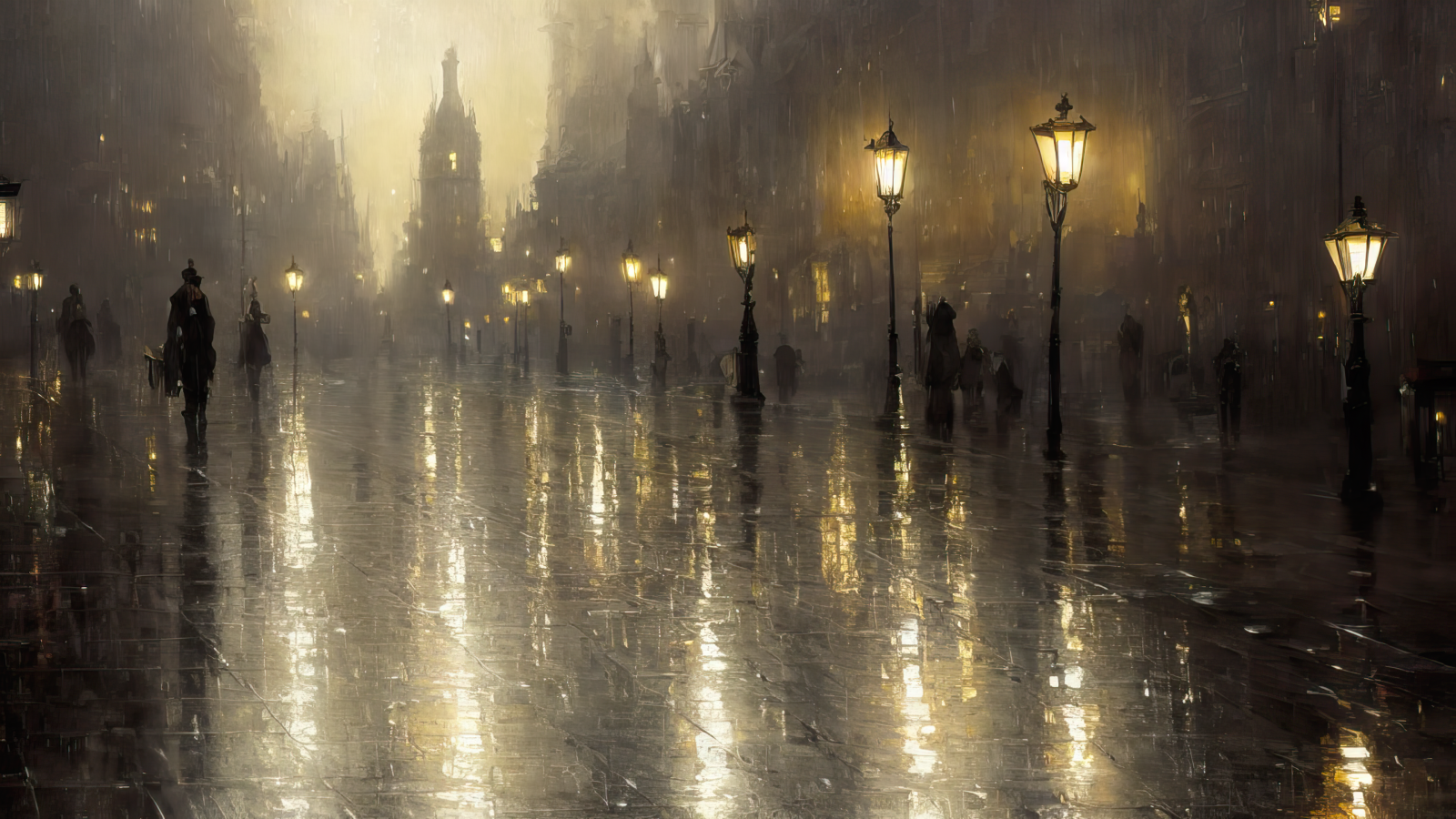We all get trapped in the narrative. That’s the thing that happens in life – if someone were to ask, ‘What is the main thing that happens in life?’ then this would be the best answer. The best answer is ‘the main thing that happens in life is that we get trapped in the narrative’. If we can’t see this then we can’t see anything! If we can’t see this then all we will ever know is what the narrative tells us, and what the narrative tells us doesn’t really matter. The odd thing about this is that we are so very proud of the thought-created narrative that we’re trapped in, we are insistent that this ongoing narrative is a good and helpful thing. Even psychotherapists will tell us that the personal narrative – the story of who we are – is a good and helpful thing. We are led to believe that it is an absolutely necessary thing. Sometimes we can have a crappy disempowering narrative – a narrative that makes us feel bad about ourselves and life in general – but then the helpful thing (so we’re told) is to turn it around so that we can then see ourselves in a fairer, less condemnatory way, and the world in a less pessimistic way. No one ever says that the narrative itself is acting against us, and that we would be better off without it; no one ever says that this is actually where our freedom lies, in ditching the personal narrative!
There is certainly no freedom to be had within the PN; there is ‘freedom within the terms of the narrative’ it is true but what this means is that we have to swallow all the assumptions that it contains, take them all totally for granted, and then proceed merrily upon this basis. There is then, supposedly, the possibility of ‘becoming free’, or of ‘having a great time’, or of ‘finding fulfilment’, and lots and lots of other good things like this. But when we look more closely at this proposition (which is the implicit claim that is being made by the narrative) we can see that it is utterly nonsensical. How can we ever be free on the basis of a whole bunch of assumptions that we don’t know to be there? We don’t know what these assumptions are and we don’t know what their impact is, or what the limitations associated with them might be; We don’t know anything about them (or even that they are there in the mix at all) and so how can we ever be free on this extraordinarily dubious basis? With ‘free’ in one very particular sense of the word only, we are free to be ignorant without knowing it, we’re free to be slaves who do not know themselves to be slaves. This may a not sound like a particularly great form of freedom but – somehow – this is the one we almost always opt for.
When we talk about a hidden level of structuration which determines our entire way of perceiving reality without us ever being able to know about it then what we’re talking about, in more familiar terms, is simply the business of ‘being programmed’. We can’t know our programming; on the contrary, it works exactly the other way around – far from being able to ‘know our programming’, or we can never do is ‘know what the programming in question allows us to know, tells us to know’, which – of course – isn’t ‘knowing’ at all. If we could be aware of the programming (i.e. the raft of invisible assumptions) which runs our lives then we would know that what we think we know we don’t know at all! The thought-created narrative which we stick to so assiduously when we’re trying to make sense of our lives (or work out what the best way to live our lives is) isn’t the programming; the programming is made up of the invisible assumptions which lie behind this narrative and that’s what we buy into every time we go along with the narrative. The ‘story of our life’ that our thoughts provide us with seems to offer us – if not freedom – then at least the chance of freedom, the possibility of freedom. There seems to be a lot of scope within it, in other words. And it’s not just that there seems to be a lot of scope within the narrative either – the narrative actually constitutes the whole world for us. The narrative is everything to us – if the scope isn’t there then it can’t anywhere! We look for everything within the mind-created narrative and the perverse thing about this is that there isn’t actually anything in it – it’s a null domain, a perfectly hollow situation. The freedom to follow the rules is not freedom and the conditioned realm is made up entirely of rules…
The mind-created narrative (which is the same thing as thought) is a Trojan Horse therefore; we’re all about it, we think it’s a great thing, but really it spells out doom. It spells our doom if we consider being trapped in a closed or conditioned reality without knowing it to be a doom. If we don’t consider this to be a doom then everything is fine and dandy and there’s no problem anywhere but if we think this then this is only because we don’t really grasp what a ‘conditioned reality’ is all about. A conditioned reality is where everything about us is predetermined without us realising it, and – what’s more (which is the icing on the cake, if any were needed) anything that is ‘predetermined’ isn’t real. All the thought’s productions are unreal, but we take them as being so; we have no choice but to take them as being so because thought tells us what to believe. If thought tells us that the unreal is real (which is what it does tell us, on a regular basis!) then we absolutely do believe this; we absolutely do believe this because thought has a complete hold on us. So thought provides us with a narrative (a story about who we are and what is happening to us in life) and there appears to be great freedom, great scope within it. There appears to be great scope within it because the mind’s domain (the conditioned realm) is tacitly represented to us as reality itself, and – as we have already said – if there isn’t scope in ‘reality itself’, then where else would we be able to find it?
Thought sells us samsara, in other words, and we have no choice but to buy what is being sold to us will. We’re the helpless consumers and thought is the advertising agency. The ‘lure’ is the apparent or proposed freedom of the mind-created self and ‘swallowing the lure’ is where we identify with this self and – from this point on – firmly and unshakeably believe that this is who we truly are. We don’t know that the reason we are identified with the MCS was in order to avail of the freedom that this self supposedly possesses open (or might possess) within the conditioned realm that we take to be reality – that wouldn’t make any sense to us at all – but that is nevertheless the hidden rationale. Thought officers the tantalising illusion of freedom and being pulled in by this illusion means buying into the idea that we are the conditioned self. That wonderfully tantalising illusory ‘freedom’ only exists from the standpoint of the conditioned self (which is the self that thought says we are), after all! The bug in the ointment here however is that the freedom we are grasping at doesn’t actually exist; the conditioned identity has no freedom because it isn’t a real thing and nothing it ever does will allow it to be free. If the self we think we are is nothing but a thought-created fiction then how can it ever have any ‘freedom’? This is our ‘doom’ when we get seduced by the Trojan Horse which is the PN, when we get hypnotised by the lure that is being dangled in front of our noses – we end up trying to avail of possibilities that don’t exist, on behalf of an identity that doesn’t exist either!
When we imagine that we need our personal narrative (and that it is healthy forest, helpful for us, wholesome and beneficial for us) then we in wildly mistaken. Our personal narrative is our prison and no matter how we may decorate our cell, no matter what nice things we may have in it, it remains our prison cell. Trying to make our prison more comfortable for us, more luxurious for us, is actually a very bad move because it will prevent us from seeing what our situation really is. When our PN is an exciting and thrilling one, when it seems to be taking us good places, towards some wonderful goal, then this is a disaster – all this means is that we are ‘falling in love with our prison’ and when we fall in love with our prison then the one thing with that we can be one hundred per cent sure of is that we’re never going to try to break free from it. We can’t break free from our personal narrative just because we suddenly take it into our heads to try to do so – that isn’t actually ever going to work out for us. All that’s going to happen then is that we are going to unwittingly create a new strand of narrative – a hopeful strand of narrative in which we are escaping (or at least trying to escape) from the narrative! This becomes our new story, a new ‘predetermined groove’ for us to travel down. This isn’t actually a new story at all of course – it’s actually a very old story, a very old and very tedious story. It’s the story of the thought created-self (which we have identified with without realising it) striving as hard as ever it can to achieve what it sees as a worthwhile or meaningful goal, which is the goal of freedom or release or fulfilment for the thought-created itself. This goal however – as we have just said – is a complete fiction; the goal is a complete fiction just as the goal-seeking thought-created self is.







Stefan
This… https://www.youtube.com/watch?v=nKtoSnys-Vs